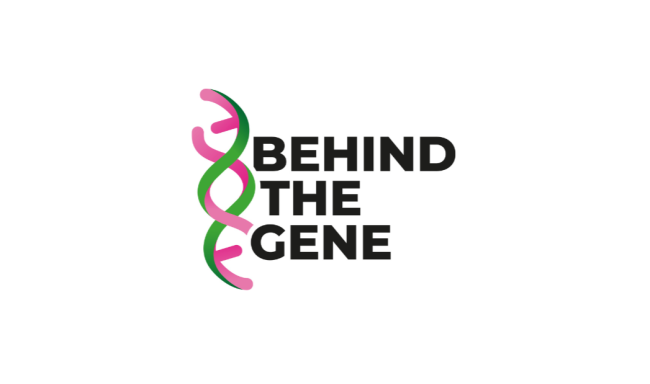Ensuring access to vital mental health support services
The Issue
Huntington’s targets nerve cells within the brain causing a triad of symptoms: motor (movement), cognitive (learning and thinking) and psychiatric (mental health), which get progressively worse. While the symptoms of the condition are different for everyone with the disease - even within the same family - psychiatric symptoms are extremely common. The most likely psychiatric disorders are depression and anxiety, changes in personality and mood, such as irritability, apathy, or disinhibition. This can make life incredibly challenging - for the individual, their carers and for the wider family. Despite the likelihood of people with the disease having mental health issues as a result of the condition, those affected are finding it very challenging to access mental health services when they need it. Often patients are declined from services just because they have Huntington’s disease, which is known as an organic brain disorder. This is an issue experienced across the country
The Problem
- People with Huntington’s disease are highly likely to have mental health issues
In a recent community survey with 109 respondents about exclusion from mental health services, the Huntington’s Disease Association found that 46% of respondents who have Huntington’s disease have experienced mental health issues 2 . Similarly, 84% of respondents who have family members with Huntington’s disease said their relatives had mental health issues. 3 Of the respondents that had experienced mental health issues, depression (72%), anxiety/panic attacks (72%) and irritability (49%) and altered emotional behaviour including irritability, emotional shallowness and apathy (47%) were the most common. This corresponds with findings from a Huntington’s Disease Association survey of health and social care professionals about exclusions from mental health services. A staggering 99% of respondents said that patients they supported who are affected by Huntington’s disease have experienced mental health issues. 4 Moreover, the survey found that 85% of patients tried to access community mental health services, 70% tried to access crisis services and 58% tried to access talking therapies
- Mental health services are often denied to people with Huntington’s disease
Despite how common mental health issues are among those affected by Huntington’s disease and psychiatric symptoms are an integral part of the condition, mental health services are often denied to people with Huntington’s disease. This is an issue Specialist Huntington’s Disease Advisers experience nationwide. This is backed up by the Huntington’s Disease Assocation’s recent professionals survey, which found that 60% of patients were denied access to mental health services because of having Huntington's disease. 6 Of those that were declined access to mental health services, over a quarter of respondents said this was because of Huntington's disease being a neurological condition/organic brain disorder (28%) Over a fifth said it was because Huntington's disease is not seen as a condition with mental health symptoms (21%) . Similarly, in the Huntington’s Disease Association’s recent community survey about exclusions to mental health services, of the respondents who were declined access to services, 20% were declined due to a disagreement about the services the patient needed to access and 17% were declined because of a lack of knowledge of Huntington's disease.
- A lack of mental health treatment leads to crisis situations
Blocking access to mental health services and treatment for those living with Huntington’s disease has detrimental impacts - for the individual, their families and wider society. In the Huntington’s Disease Association’s professionals survey about exclusion to mental health services, for patients that were denied access to mental health services, 91% of patients' mental health worsened to either a great or some extent. For those directly affected, in the community survey, 30% of respondents who were denied access to services experienced a deterioration of mental health as a result. Denying access to mental health services for people living with Huntington’s disease makes it more likely for these individuals to experience crisis situations. The ’s survey of professionals found that this includes being admitted to hospital (13%), being sectioned (10%) and causing increased pressure to other services (10%). These outcomes are more costly for public services, it makes resolving the mental health issues much harder and makes life more debilitating for those affected and their families.
- Worsening mental health can lead to homelessness, suicide or crime
As mental health symptoms worsen and the person living with Huntington’s disease isn’t provided with adequate care, risks to themselves, their families and their communities increase dramatically. In the Huntington’s Disease Association’s professionals survey about exclusion to mental health services, for patients that were denied access to mental health services, 10% of patients experienced self neglect, self harmed or attempted suicide. The survey also found that 3% of patients committed a crime or ended up in prison and 3% of patients ended up homeless.
- A lack of support has wider implications for carers and families
The impact of untreated mental health issues among people living with Huntington’s disease has a significant impact on carers and the wider family. At best, it can cause tensions between relatives and at worst, it can put lives at risk. In the Huntington’s Disease Association’s recent community survey about exclusions to mental health services, of the respondents who were declined access to services, 9% experienced relationship and family damage/breakdown, 5% abused a family member/carer and 5% ended up homeless or had to be moved out of the family home. What is more, carers themselves are likely to need mental health services because of the knock-on effect of having to care for someone with the disease. However, it is also very difficult for carers to access mental health services when they need them. In the Huntington’s Disease Association’s recent professional survey about exclusions to mental health services, for carers that were denied access to mental health services, 78% of patients' mental health worsened to either a great or some extent.
The Solution: Ensure Huntington's disease patients are eligible to access mental health services
In the short term, the government and NHS England have a critical role to play in ensuring that people living with organic brain disorders, such as Huntington’s disease are eligible to access mental health services when mental health symptoms are present. This includes reviewing eligibility criteria for NHS Mental Health Trusts. The disease has a ripple effect and impacts the people around the person living with the condition too. Consequently, mental health services should be accessible to everyone, including families and carers of Huntington’s disease patients.
In the medium term, as there is a lack of understanding and knowledge of Huntington’s disease among clinicians, NHS England should provide specialist training and support so that people affected by Huntington’s disease can be effectively treated. There are now 1 in 6 people living with neurological conditions and this figure is projected to increase. This is a considerable number of people potentially being denied access to mental health support. A better trained and more equipped workforce is crucial.
In the long term, there should be more specialist mental health services for people living with neurological conditions, such as Huntington’s disease. There are centres of clinical excellence for mental health services for people with neurological conditions in the country, such as The Barberry in Birmingham. These services could be used as models for driving up standards in mental health support for people living with Huntington’s disease and other neurological conditions





